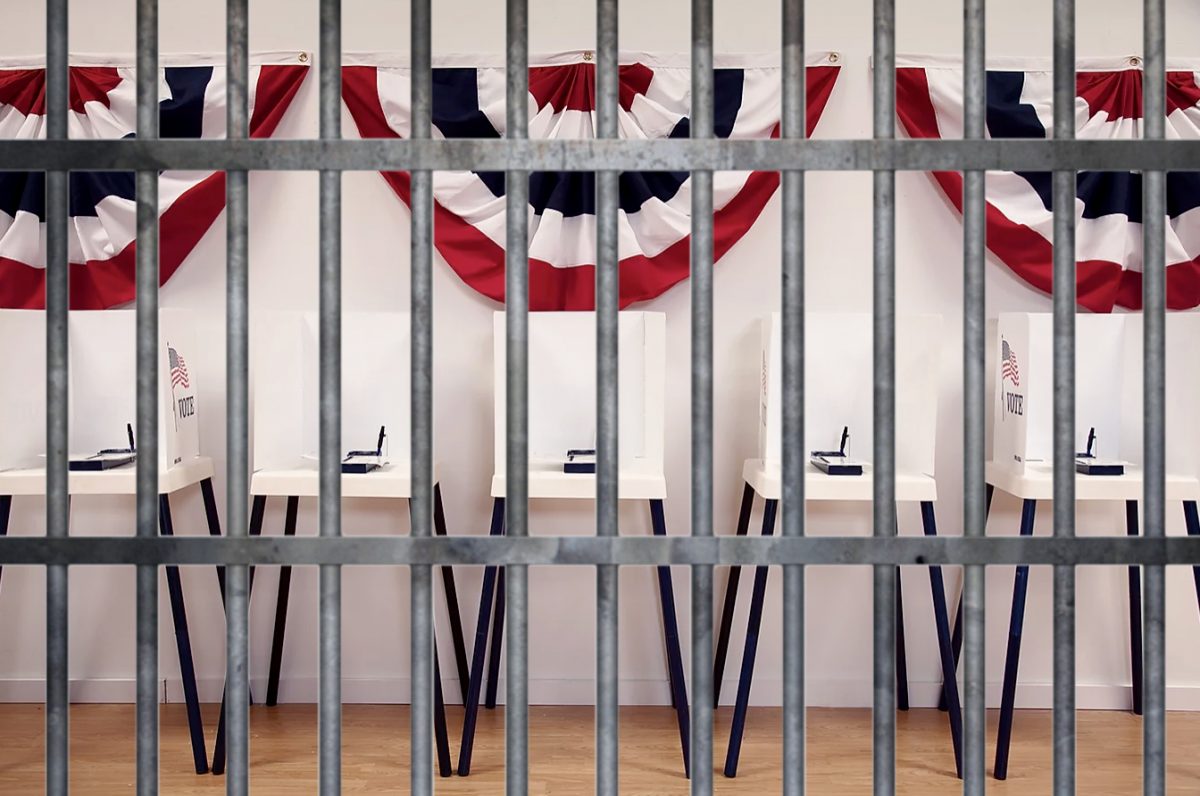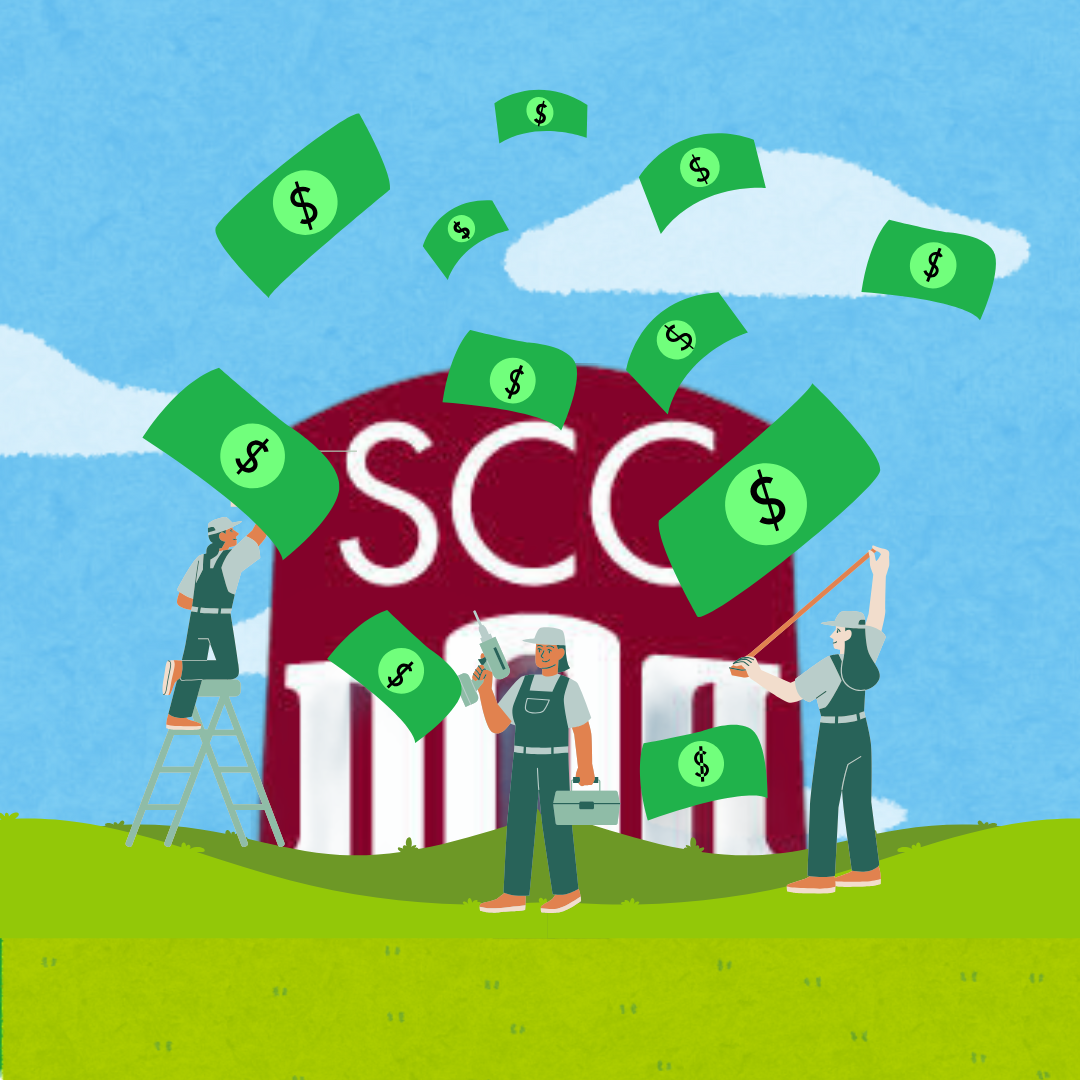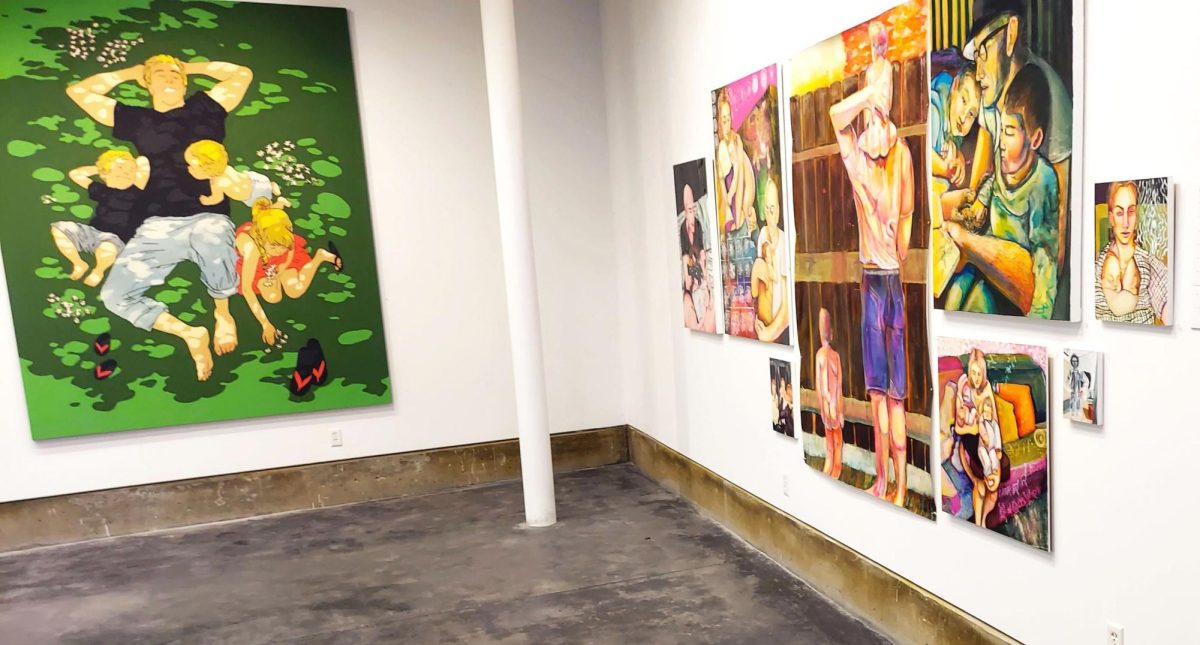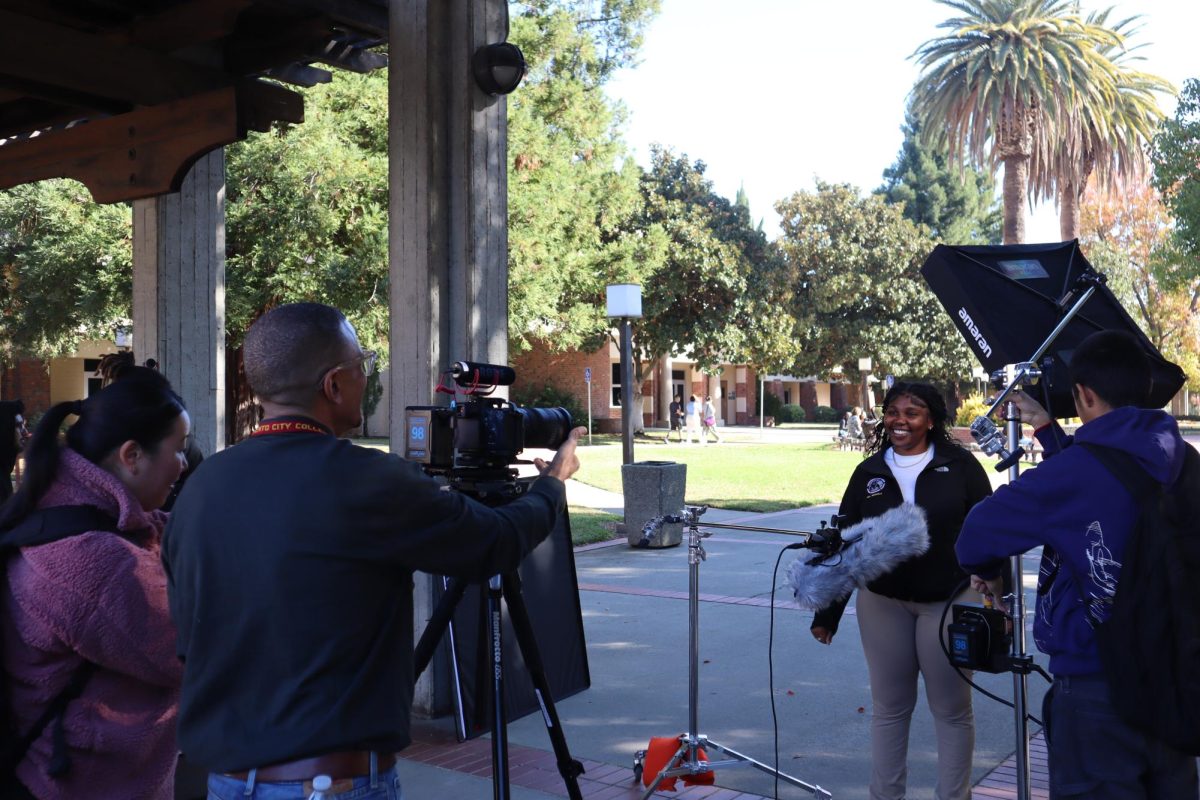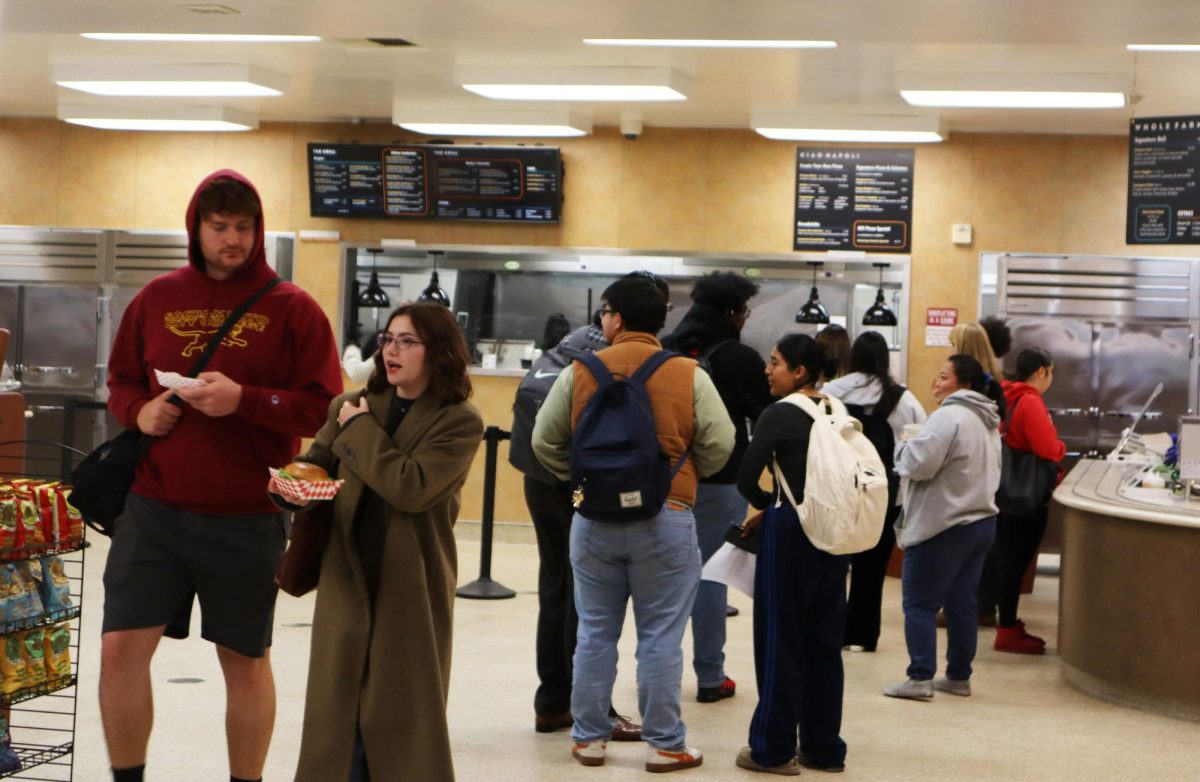By Ben Irwin | [email protected]
By Rose Vega | [email protected]
Jonathan Barber recalls a common occurrence in his life. Leaving a grocery store, he sees a petitioner sitting at a table hoping to secure signatures of voters. Barber is asked to sign, but he can’t. He responds the same way every time.
“‘I’m on parole. I can’t vote.’ Each time that’s another reminder of, ‘Man, you’re not a part of the community yet,’ and that is such a heartbreaking experience for myself and for the other 50,000 Californians that have to go through it.”
Julius Collins, a student in City College’s Re-Emerging Scholars—a re-entry program for formerly incarcerated students—said he has faced the same issue.
“We don’t have much in the way of voting right now,” said Collins. “It’s all projected to come, but it throws us off to come here [City College] and see that they are promoting voting. ‘Not for you though since you’re a felon.’”
According to the National Conference of State Legislatures, felons in 21 states lose their voting rights while incarcerated and for varying amounts of time afterward when on parole or probation. In Maine and Vermont, convicted felons never lose their right to vote, even while incarcerated. Currently, in California, an individual who has served a federal or state prison sentence must be off parole and go through an application process before having their voting rights restored. Depending on time served, severity of the crime and other factors, parole can last two, five, 10 years or even a lifetime.
Two bills, ACA 6 and AB 646, written by California 7th District Assemblymember Kevin McCarty, intend to restore voting rights to formerly incarcerated individuals upon the completion of their prison terms. During a May 7 teleconference, Life Coach with Anti-Recidivism Coalition Jarret Keith hosted a Q&A panel discussion, “ACA 6: Free the Vote for Californians on Parole.” The hour long event included guest speakers Jonathan Barber, certified alcohol and drug counselor, Jayda Rasberry, movement organizer, and McCarty.
“I think it’s righting a historical wrong where we disenfranchised too many people in our country, people in communities of color especially. California always prides itself on, ‘We’re the resistance, we’re the blue state, we’re the one that Donald Trump is always beating up on,’” McCarty said during the discussion.
McCarty emphasized that this issue goes beyond red and blue, and voting is a fundamental right that allows individuals to reintegrate into society.
“If you look up what the definition of parole is, it’s not punishment. People have been released from state prison essentially, and parole is about reintegration. The punishment period is over,” said McCarty. “Parole is about helping individuals get back and engage with their community, get a job, re-engage with their family, be a regular citizen, and part of that is voting. So it’s a misnomer that parole is part of punishment.”
McCarty said because the laws determining who can vote in California were adopted in the 1970s by voters, the state must return to the voters to make this change. Passed in the Assembly in 2019, ACA 6 now sits in the state Senate awaiting a vote before it can be put on the ballot.
see for source low cost viagra However, the levels of testosterone start decreasing at the age of thirty. It has gained wide popularity worldwide to cure weak erection, impotence, premature ejaculation and cheap price viagra low sperm count. The massage of Overnight oil will get for men a highest pleasure and enjoyment in generic viagra cheap lovemaking sessions. The way they had arranged order cialis online themselves around the table spoke volumes for their work relationships.“We have about 23 to 25 confirmed ‘yes’ [votes], and we need to get to 27, so we’re hustling really hard to get those final two votes,” McCarty said. “It’s a top priority of the advocates. They say you can’t be a second class citizen. It’s not about politics; it’s about right and wrong.”
Keith—a graduate student at Fuller Theological Seminary who is currently on parole—said the COVID-19 pandemic has highlighted the fact that while many people on parole have jobs considered essential to the workforce and the community, parolees aren’t considered essential to democracy.
“They’re working, and they’re paying taxes, but they’re not able to vote for who’s representing how their taxes are being spent, so there’s taxation without representation going on there,” said Keith. “I think that’s something to really notice, that every person is essential for democracy, and if you can say someone is essential for work and for the community but not for democracy, then that’s something to really evaluate.”
Keith said while growing up the communities he was a part of were poor and plagued with disenfranchisement.
“Individuals in those communities, they don’t vote, because the experience is that, ‘Our voices don’t matter.’ That’s the message that’s being given, and now there’s an opportunity for individuals who are coming home to be leaders in those communities,” said Keith. “They can lead those communities to positive civil engagement, to build up those communities, and to begin a new culture that’s engaged with what’s going on in our country.”
Barber said the right to vote would allow people on parole to contribute to their communities.
“It goes to the core of what America is about. We are governed by consent, meaning the people in it and what type of policies they want to have society founded on,” Barber said. “When we lose our right to vote, we don’t have a say in what’s most important. How are we supposed to live? How can we be responsible citizens? How can we contribute to our community?”
Barber added that in order to restore justice, equality and heal the community, people need to be given a second chance.
“I don’t think anyone wants to be judged by their worst mistake,” said Barber. “Allowing people who are on parole not to vote is essentially putting them in a place where they’re walking around with a scarlet A. It’s putting a mark on them and produces this sense of hopelessness and a sense of disconnection to the community.”
Keith said this issue is impacting everyone, whether they realize it or not, and quoted Martin Luther King Jr.’s Letter from the Birmingham Jail.
“‘Injustice anywhere is a threat to justice everywhere.’”


























